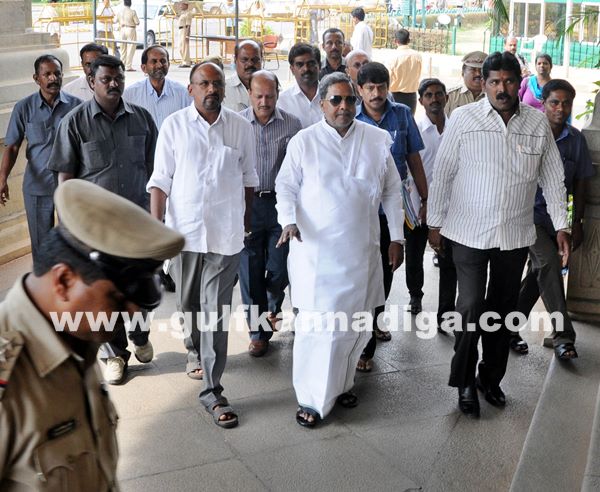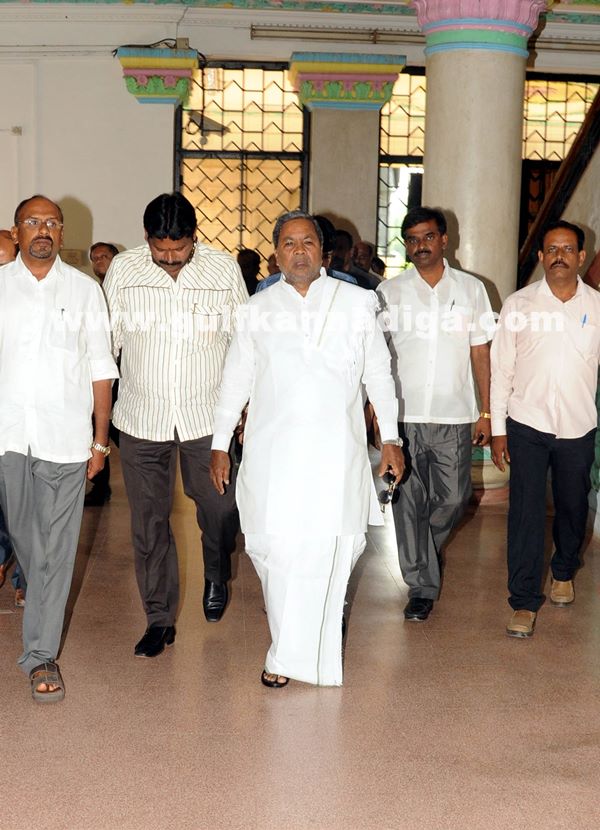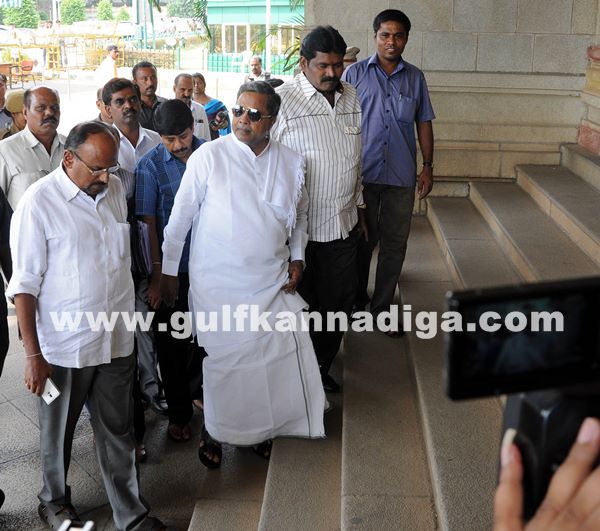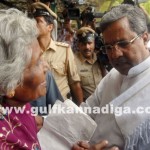
Bangalore: Cabinet approves introduction of self-declaration forms
The State Cabinet on Monday decided to do away with the system of receiving affidavits for delivery of various services from public and instead, introduce self-declaration forms, in an effort to bring in reforms in administration.
Briefing reporters about the Cabinet decisions, Law Minister T B Jayachandra said people were facing a lot of inconvenience for getting an affidavit done from a notary, besides spending a huge sum of money. Self-declaration forms will put an end to all these problems. However, those who misrepresent facts and give false information in the self-declaration will be punishable under Section 177 of IPC (up to six months imprisonment and Rs 1,000 fine), he said.


About 24 departments of the government, including Food and Civil Supplies, Revenue, Law and Home, have given the green signal for adopting the self-declaration system. Directions will be issued to all the departments to adopt the new system, wherever it is not mandatory under an Act to collect affidavits, the minister said.
The departments have been asked to come out with model self-declaration forms in two months’ time and publicise them. Such a system has already been successfully experimented in Punjab, he said.
In order to make Sakaala more effective, the Cabinet decided to amend the Karnataka Guarantee of Services Act. Accordingly, the upper limit for imposition of fine on officials who fail to provide services within the stipulated time will be removed. The upper limit was Rs 500.
Besides, a provision will be made for taking disciplinary action against officials found guilty under the Act, the law minister said.
Mining ban
Jayachandra said the Cabinet has decided to accept a recommendation of the controversial Kasturirangan report on the protection of Western Ghats to impose a ban on mining activities in the Western Ghats. However, it has disagreed with many other recommendations, including banning sand mining, stone crushing and fixing the buffer zone comprising 1,580 villages in the region.
The minister said the Cabinet has decided that the number of villages to be brought under buffer zone should be reduced to 850 from 1,580 as it covers a vast area. Besides, the Cabinet has decided that drinking water projects should not be stopped in the Ghats region.
“The Cabinet is of the view that the local community should not be subjected to harassment. The decisions of the Cabinet will be conveyed to the Centre,” he said.But the Cabinet has agreed with the Kasturirangan report to ban big and red category industries in the region. The State government had set up a Cabinet sub-committee to look into the Kasturirangan report and prepare a draft of the State government’s response to the Centre in this regard, Jayachandra said.
The Cabinet has decided to release Rs 1,000 crore to all the city corporations in the State, excluding BBMP, for upgrading infrastructure under Nagarothana III programme. The money will be released in instalments in a span of three years, Jayachandra said.
The Cabinet, however, did not take up for discussion a proposal to appoint senior Congress leader C M Ibrahim as the vice chairman of the State Planning Board. Ibrahim is a close aide of Chief Minister Siddaramaiah.


